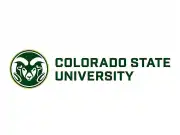Science and Engineering Programs in the USA for International Students
- Advantages of Studying Natural and Exact Sciences Programs in the USA
- Formats and Levels of Natural and Exact Sciences Programs in the USA
- Top Universities for Natural and Exact Sciences in the USA
- How to Apply to Natural and Exact Sciences Programs in the USA
- Required Documents for Natural and Exact Sciences Programs in the USA
- Tuition Fees for Natural and Exact Sciences Programs in the USA
- Scholarships and Grants for Natural and Exact Sciences Programs in the USA
- Career Prospects and Internships after Studying Natural and Exact Sciences in the USA
- FAQ – Frequently Asked Questions

Bachelor of Arts - History
Webster UniversityStudents who major in history will:
- Know the broad strokes of modern world history, i.e. since 1500
- Be familiar with the history of a particular region or time period
- Be able to use historical examples and examples to support your claims about the past

Bachelor of Arts - Psychology (Mental Health)
Webster UniversityA BA in psychology with a concentration on mental health is meant to demonstrate knowledge of the interplay between biological, psychological, and social variables in the development of mental illness and wellness.
Graduates will be qualified for a wide range of graduate programs and professional…

Master of Science - Biomedical Sciences
Webster UniversityThe master of science in biomedical sciences degree offered by the graduate program opens up a wide range of job options for its graduates (medical, dental, veterinary, pharmacology, etc).
The foundation of the program is the graduate common requirements, but it also takes into account the…

Bachelor of Science - Biochemistry
Colorado State UniversityBiochemistry is the study of all living organisms, including the chemical processes that keep them alive. In this major, you will investigate life's simplest components, such as DNA, genes, and cells. With well-rounded science skills in chemistry, biology, physical science, and mathematics, you can…

Bachelor of Science - Biology
Colorado State UniversityBiology majors study life on all levels, from DNA to ecosystems. You'll learn science hands-on in courses and laboratories, covering animal and plant life, ecosystem sciences, genetics, sustainability and climate adaption, behavior, and other topics.A strong core of physical science and mathematics…

Bachelor of Science - Chemistry
Colorado State UniversityThis Bachelor of Science in Chemistry is accredited by the American Chemical Society (ACS). All branches of science, including biochemistry, engineering, ecology, and materials science, are subfields of chemistry. Recognizing the potential for unanticipated outcomes, chemists produce molecules ranging…

Bachelor of Science - Geography
Colorado State UniversityThe Geography major is housed within the Department of Anthropology and Geography. Majors gain a broad understanding of geography through academic work and internship opportunities. The major focuses on interactions between humans and the environment in an era of fast global change. Students can comprehend…

Bachelor of Science - Human Dimensions of Natural Resources
Colorado State UniversityHuman conduct is the main cause of many problems in natural resources; hence, remedies for such problems call for creative problem-solving, thorough knowledge of difficult problems, and group action. This major emphasizes on the social dimensions of natural resources as well as acquiring the knowledge…

Master of Science - Biological Science
Colorado State UniversityThe Department of Biology's Master of Science in Biological Science (Plan A and Plan B) degree program covers all aspects of life, from molecules to ecosystems, with a focus on organisms. Topics are based on both fundamental and applied research. Students work and study in locations around Colorado,…

Master of Science - Environmental Health
Colorado State UniversityThis program offers graduate students extensive expertise in environmental health. The program adheres to the concepts and principles outlined by the National Environmental Health Association, which defines environmental health as “the science and practice of preventing human injury and illness and…
Advantages of Studying Natural and Exact Sciences Programs in the USA
The USA is a global leader in the field of natural and exact sciences. The country's universities offer advanced educational programs that combine fundamental knowledge with practical training and innovation. International students choose the USA for its unique development opportunities, modern laboratories, research grants, and close collaboration with industrial companies and scientific institutes.
Why Choose the USA:
- Quality of Education: American universities are ranked among the top in global rankings (e.g., QS and THE) due to their high academic standards.
- Research Base: More than 70% of scientific research at universities is funded by the government and private companies.
- Flexible Program Structure: The ability to choose courses in various fields and tailor the program to your interests.
- International Recognition of the Degree: Graduates of American universities are in demand worldwide.
- Innovative Environment: Technology hubs such as Silicon Valley and the Boston science cluster create opportunities for internships and startups.
Formats and Levels of Natural and Exact Sciences Programs in the USA
The US education system offers various levels of training suitable for recent high school graduates as well as those who already have higher education.
Main Program Levels:
- Undergraduate (Bachelor's): 4 years of study. Upon completion, a Bachelor of Science (BS) degree is awarded in the selected field.
- Graduate (Master’s): 1–2 years. Master of Science (MS) degree.
- PhD (Doctorate): 4–6 years. Includes coursework, exams, and research work.
Study Formats:
- Full-time
- Part-time
- Online programs, including blended
- Certificate and short-term programs — for deepening knowledge in a specific area
Top Universities for Natural and Exact Sciences in the USA
Below are leading, yet realistically accessible universities for international students:
| University | Specialization | Acceptance Rate |
|---|---|---|
| University of California, Berkeley | Chemistry, Physics, Biology, Mathematics | ~15% |
| University of Illinois Urbana-Champaign | Computer Science, Mathematics | ~63% |
| University of Wisconsin–Madison | Biology, Ecology, Engineering | ~57% |
| Georgia Institute of Technology | Physics, Applied Mathematics | ~36% |
| Pennsylvania State University | Earth Sciences, Chemical Engineering | ~56% |
How to Apply to Natural and Exact Sciences Programs in the USA
- Select a university and program.
- Take exams: SAT/ACT for undergraduate, GRE/GMAT for graduate, IELTS/TOEFL/Duolingo to prove English proficiency.
- Prepare documents.
- Submit the application through the university website or CommonApp.
- Interview (if required).
- Await decision.
Application deadlines: from October to January (for fall intake).
Required Documents for Natural and Exact Sciences Programs in the USA
- High school diploma or bachelor's degree (with notarized translation and certification)
- Academic transcript
- Exam certificates (SAT, GRE, TOEFL, etc.)
- Recommendation letters (2–3)
- Motivation letter or essay
- Resume (for graduate and doctoral programs)
- Portfolio (for technical disciplines or research)
Cost of Studying Natural and Exact Sciences Programs in the USA
| Type of Institution | Annual Cost (USD) |
|---|---|
| Public University (in-state) | $15,000 – $25,000 |
| Public University (out-of-state) | $25,000 – $40,000 |
| Private University | $40,000 – $70,000 |
Additional Expenses:
- Housing and meals: $10,000 – $15,000 per year
- Health insurance: $1,000 – $2,000
- Study materials and transport: $1,000 – $2,500
Scholarships and Grants for Natural and Exact Sciences Programs in the USA
Funding Options:
- Government:
Full-grant foreign student programs — for master’s and PhD - University-based:
Merit-based and Need-based scholarships
Assistantships (Graduate assistant / Research assistant) - Corporate:
Google Scholarship
IBM PhD Fellowship
Selection Criteria:
- High academic performance
- Active participation in research
- Social involvement, leadership
Deadlines:
From October to February depending on the program
Career Prospects and Internships after Studying Natural and Exact Sciences in the USA
American universities provide strong career support:
- Career centers help with resumes, job search, and interview preparation
- Internship and co-op programs as part of studies
- Optional Practical Training (OPT): up to 12 months of internship, up to 36 months for STEM fields
Popular employers of graduates:
- NASA
- Amazon
- Pfizer
- Intel
FAQ – Frequently Asked Questions
- Can I apply without SAT/GRE to Natural and Exact Sciences Programs in the USA?
Yes, some universities have waived mandatory exams. However, submitting scores can increase your chances of admission and scholarships. - How difficult is it for international students to get accepted to Natural and Exact Sciences Programs in the USA?
The competition level is high, especially at top universities. But with solid preparation and strong application documents, admission is entirely possible. - Which fields are the most promising in Natural and Exact Sciences Programs in the USA?
Data Science, Biotechnology, Artificial Intelligence, Ecology, and Sustainable Development. - What is the minimum English proficiency required for Natural and Exact Sciences Programs in the USA?
Minimum required: TOEFL 80+, IELTS 6.5+, or Duolingo 110+ in some cases. - Can I work while studying in Natural and Exact Sciences Programs in the USA?
Yes, up to 20 hours per week on campus during semesters and up to 40 hours during breaks. - What is STEM and why is it important in the USA?
STEM — Science, Technology, Engineering, Mathematics. STEM programs allow for extended internships under the F-1 visa in the USA. - When should I start preparing for admission to Natural and Exact Sciences Programs in the USA?
Preferably 12–18 months before your intended start date to have enough time for exams and document preparation. - What careers are available after graduating from Natural and Exact Sciences Programs?
In-demand careers include Data Analyst, Research Engineer, Chemist, Bioinformatician, Sustainability Specialist, Research Scientist, and others. - How do I choose a major in Natural and Exact Sciences if I’m still undecided?
The US system allows you to enroll in a general track (e.g., General Science) and choose a specialization by the 2nd–3rd year. This gives time to explore disciplines like biology, physics, ecology, and mathematics before deciding. - Does participation in research projects and competitions affect admission to Natural and Exact Sciences Programs in the USA?
Yes, especially for top universities. Participation in scientific conferences, publications, and winning academic competitions can significantly strengthen your application by demonstrating motivation and academic engagement.